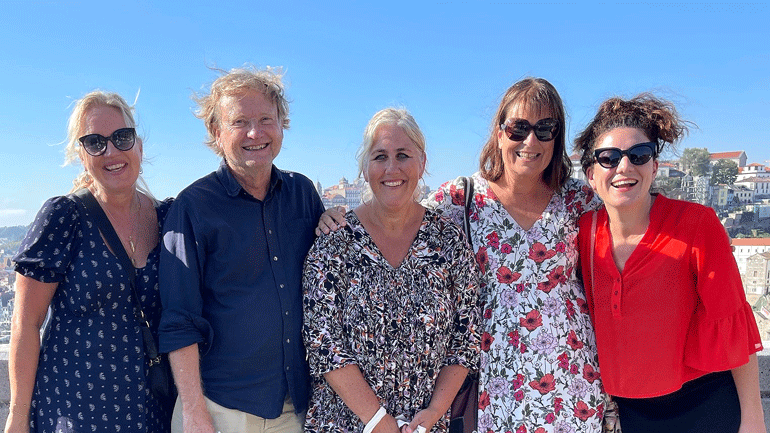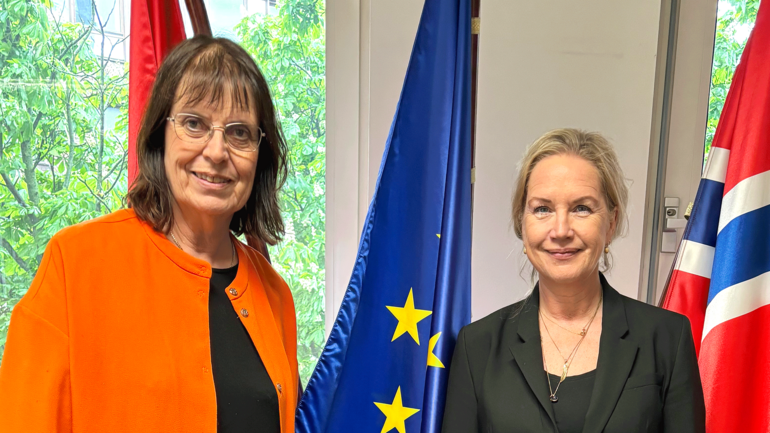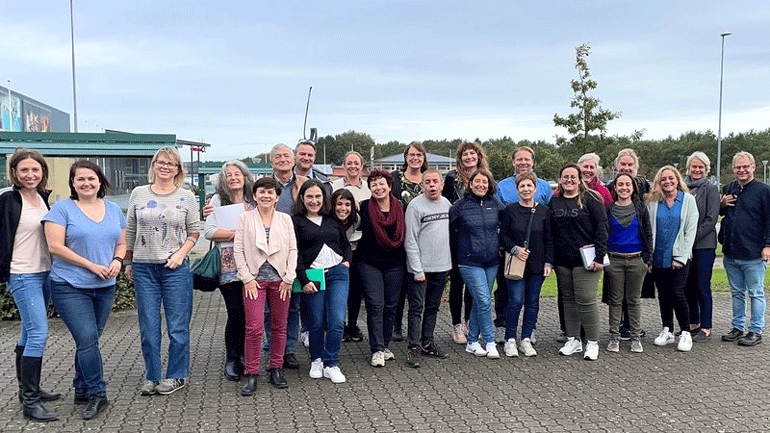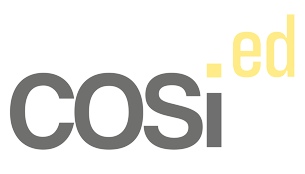USN is proud to have led a comprehensive, European innovation and policy development project that gives a voice to vulnerable young people. Since 2021, researchers and educators in Norway, Denmark, Poland, Spain and Portugal have worked side by side with young people in a co-creation process through the Co-created Education through Social Inclusion (COSI.ed) project.
"All the work in our project is based on the understanding and belief in a community of practice, where young people interact with the experts. That is, they work side by side with researchers, teachers, and decision-makers, and together we learn and develop knowledge and skills," says Professor Mette Bunting, Project Manager of COSI.ed.

Policy Recommendations
The project receives 500,000 euros through Erasmus+'s KA3 (Support for Policy Reform - Social Inclusion) program. This program supports projects aimed at contributing to policy formulation and reform. The focus is on social inclusion, especially for groups at risk of marginalization and exclusion.
In addition to creating a comprehensive, European model for social inclusion of children and young people at risk of social exclusion, the project has also delivered policy recommendations for all of Europe on the social inclusion of children and young people.
"This is a call to decision-makers, teachers, school leaders and other stakeholders to prioritize co-creation processes and invest in initiatives that contribute to the inclusion of all learning young people, in kindergartens, schools and in higher education," says COSI.ed Project Manager Mette Bunting (USN).
You can find the policy recommendations and the education model on the COSI.ed project web page (cosied.eu/documents), or simply download them here as PDF-files:
- Education Model: COSI.ed-model
- Policy Brief 1: Promoting Social Inclusion: Promising Educational Practises from COSI.ed (long version)
- Policy Brief 1: Promoting Social Inclusion: Promising Educational Practises from COSI.ed (short version)
- Policy Brief 2: Transformative Power of Inclusive Education to Prevent Early Leaving from Education and Training (long version)
- Policy Brief 2: Transformative Power of Inclusive Education to Prevent Early Leaving from Education and Training (short versjon)
Four principles
All partners in the five different countries have tested the educational model, which consists of four principles:
- The value of context. When we work with children and young people, we must know and understand the context of children and young people's lives. Where are they today? What previous experiences do they have, and how do these play out in the context in which you meet them?
- Co-creative learning is about the students learning, and the teachers learning from each other - and bringing skills and experiences into the learning process. The focus is on how to create more symmetrical forms of collaboration.
- Indirect approach is about how we relate to and communicate with children and young people. The ideal is to be conversational, not ask questions and rather let the child/young person lead the conversation and focus on their story.
- Equality Literacy is a framework/tool that helps to find out what can help or hinder a person from learning. These principles establish a communication platform between education stakeholders and youth, effectively identifying and addressing vulnerabilities.
What does the COSI.ed project mean for young people? (panopto.eu)
Implemented in Schools
The COSI.ed model was implemented in all five partner countries. In Norway, this was done by the University of Southeast Norway and the Counseling Service for Education and Psychology at Kragerø Upper Secondary School, with a focus on professional guidance for schoolchildren at risk of not completing upper secondary school.
Among the results researchers found were:
- positive perceptions among students and teachers
- increased self-confidence
- supportive relationships
- improved learning environment
- wider awareness and engagement within the education community

Co-creation
In the COSI.ed project, the partners have worked together with young people who are in vulnerable situations. Through the project, the young people learn about themselves and how they can excel, while researchers and school staff develop skills and understanding to socially include young people.
"We listen to their life stories and educational experiences, and through a collaboration process we try to find out what can be a hindrance to, or support further learning for them. Our starting point is that co-created education and training, where young people, researchers, school staff, stakeholders and decision-makers participate, will contribute to social and educational inclusion of groups that have traditionally been marginalized," says Bunting.
Mette Bunting is also the leader of one of USN's strategic research areas: Upbringing, Belonging and Life Skills (usn.no).
All of Europe
The COSI.ed project's final conference took place at Young European Research Universities (YERUN) (yerun.eu) offices in Brussels on May 15th.
Here, the project presented its findings, experiences and the educational model that has been developed. At the same time, the project delivered its recommendations to teachers, school leaders, politicians and decision-makers all over Europe.
- Key documents are shared on the project webpage (cosied.eu/documents)
Long-term work
The COSI.ed project is a continuation of a long-term work that has also previously received EU support. COSI.ed is an upscaling and continuation of the good practice and educational model delivered through the Erasmus+ project Marginalisation and Co-created Education (MaCE) (usn.no), which was also led by Mette Bunting at USN.
The MaCE model builds further on a long-term study Bunting conducted together with Associate Professor Geir Moshuus on dropout rates in upper secondary school.
- Further reading: Young peoples’ own stories about dropping out in Norway: An indirect qualitative approach (journals.uio.no)



